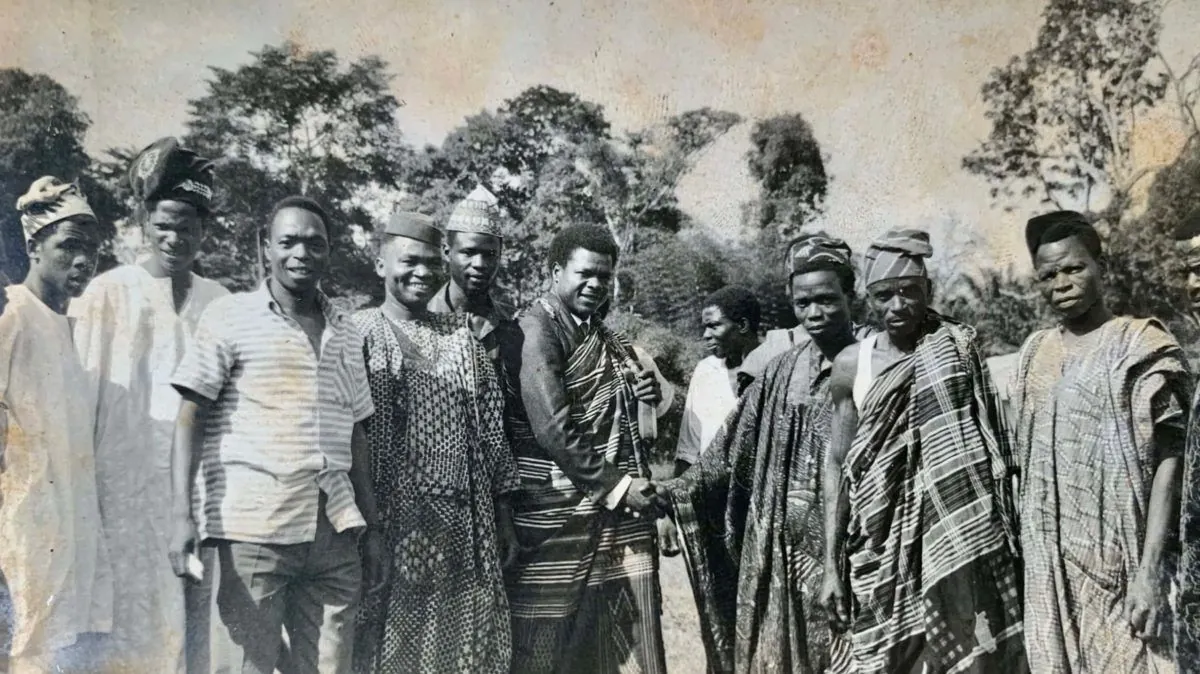Nigerian-American Saga "Sojourners" Explores Immigrant Dreams at Round House
Mfoniso Udofia's play "Sojourners" at Round House Theatre delves into the lives of Nigerian immigrants in 1970s America. The production showcases compelling performances amidst themes of cultural adaptation and unfulfilled aspirations.

Mfoniso Udofia's "Sojourners," currently staged at Round House Theatre, offers a poignant exploration of the Nigerian-American immigrant experience. Set in Houston in 1978, the play serves as the opening chapter of a nine-part cycle, delving into themes of cultural adaptation, unfulfilled dreams, and the search for identity.
At the heart of the narrative is Abasiama, known as Ama, portrayed with remarkable depth by Billie Krishawn. Ama's character embodies the struggles faced by many Nigerian immigrants who came to the United States in the 1970s, a period that saw a significant increase in Nigerian immigration to America. Krishawn's performance captures the complexity of a woman torn between traditional expectations and the realities of life in a new country.
The play introduces us to Ama and her husband Ukpong, played by Opa Adeyemo, a couple brought together through an arranged marriage - a practice still common in some Nigerian cultures. Their relationship serves as a microcosm of the challenges faced by immigrant couples, with Ukpong becoming enamored with American culture, particularly Motown music and Guinness beer, which has been popular in Nigeria since its introduction in 1963.
Ama's journey is intertwined with that of Moxie, portrayed by Renea S. Brown, a character seeking to escape sex work. Their unlikely friendship highlights the diverse experiences within the immigrant community and touches on the broader civil rights issues of the era. The costume design by Ivania Stack, featuring platform heels and "Daisy Dukes," authentically captures the fashion of the late 1970s.
Another significant character is Disciple, played by Kambi Gathesa, a Nigerian student grappling with writer's block as he works on a dissertation about migration patterns. His presence in the story reflects the experiences of many Nigerian students who have been coming to study in the United States since the 1960s, often driven by the promise of the American Dream and the opportunities presented by Nigeria's oil boom in the 1970s.
Director Valerie Curtis-Newton skillfully navigates the complex themes of the play, which include cultural assimilation, identity, and the pursuit of a better future. The production's rotating set, designed by Paige Hathaway, effectively conveys the transient nature of the characters' lives.
While the play offers compelling performances and touching moments, particularly in the sisterhood that develops between the female characters, it also raises questions about character stereotypes. The audience's reactions to certain scenes suggest a potential reinforcement of preconceived notions, a aspect that merits further examination in the context of immigrant representation in theater.
"If that's all anyone asked of life, it would be enough."
"Sojourners" marks an intriguing start to Udofia's cycle, leaving audiences eager to follow Ama's journey in subsequent installments. The play not only sheds light on the Nigerian-American experience but also contributes to the rich tradition of immigrant literature that has been gaining international recognition since the 1950s.
Theatergoers have until October 6, 2024, to catch this thought-provoking production at Round House Theatre in Bethesda. With its blend of historical context, cultural insights, and powerful performances, "Sojourners" offers a compelling look at the immigrant experience that resonates well beyond its 1970s setting.


































